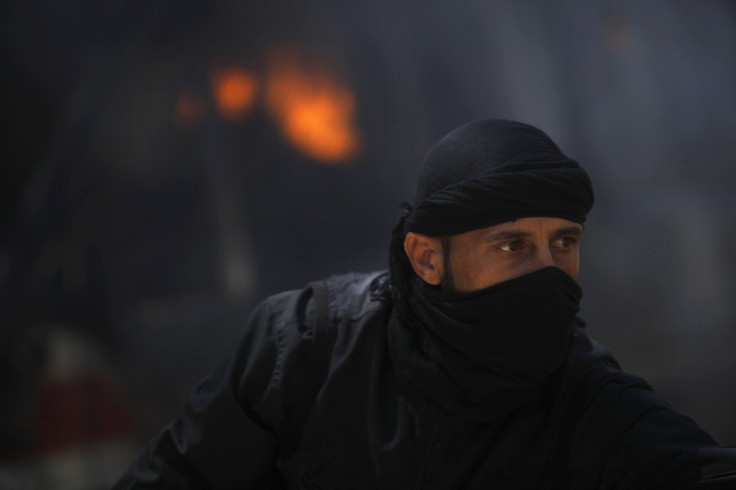Damascus Diary: Time To Fear The Islamists. Or Not?

DAMASCUS, Syria -- Recently, I learned more about the reasoning of people who still root for the Syrian regime. Their support for President Bashar al-Assad is often steeped in their fear of Islamists, so much so that they’ve turned it into a self-fulfilling prophecy.
"I’ll take the devil, but not those horrible Wahhabis,” said one Damascene woman, a pious Sunni Muslim. She echoes a common sentiment: Wahhabism, a sect that originated in Saudi Arabia and espouses a strict interpretation of Sunni Islam, is widely feared here, even by the religious, for its fundamentalist views.
“It’s a tragic argument,” say supporters of the uprising, correctly pointing out that two years ago, when Syria’s uprising first ignited, the movement had nothing to do with Islamists and everything to do with calls for dignity and freedom. But, they say, now the uprising has been hijacked by a proxy war of ideologies between Sunni Saudi Arabia and Shi'ite Iran. For people who only see these two players, Iran is the lesser evil.
The international community also has shied away from supporting Syria’s rebels for fear of the rise of Islamist extremism. By doing so, it has given the advantage to rebels who receive their funding from Islamists based in Saudi Arabia, Kuwait and Qatar. Now, the facts on the ground reflect this conspiring dynamic. According to recent findings by U.N. investigators, most Syrian rebel fighters do not envision democracy, but have other agendas.
Many observers disagree. And based on my experiences and the observations of many of my journalist colleagues who traveled with Syrian rebels throughout the country, including with Jabhat al Nusra, an al Qaeda affiliate, the fear of Islamists is overblown. “You start to notice that as more and more Syrian fighters join in, the brigade of foreign fighters moderates itself. It just can’t sustain its radical ideas, because those ideas contradict Syrians’ way of life,” said one colleague who spent time in Ruqa, which recently came under the control of Jabhat al Nusra.
She gave examples. In Ruqa, Jabhat al Nusra started distributing fliers to the local women, “informing them of the virtues of wearing a niqab,” or a face cover. “But the local women, all of them already conservative and wearing the hijab [head cover], rejected it. They would say: ‘Why? What’s wrong with the way I dress?’ And the men from Jabhat al-Nusra would back off.”
Another example included one-upmanship between protesters, half of whom carried al Nusra’s Islamist flag, and the other half the Syrian revolutionary flag. “Al Nusra guys were much louder, but after everyone went around the block a couple of times, people among the Nusra supporters went to drink arak!” she said, referring to a popular alcoholic drink.
Al Nusra invokes intense fear and worry for Shi'a Muslims, not least because it might aim to destroy their shrines. During a recent trip to Sit Zeinab, an exquisite shrine on the outskirts of Damascus and a place of pilgrimage for both Sunni and Shi'a Muslims -- though particularly special for the Shi'a -- men in military fatigues guarded the site. They were mostly volunteers, having heeded a call from Hassan Nasrallah, head of the Iranian-backed Hezbollah in Lebanon, to protect Shi'a holy sites. Here, worshipers believe the granddaughter of Islam’s Prophet Muhammad lies inside the delicately carved silver shrine, with her face toward Mecca. The mosque, visited by all Muslims, has ironically become one of the most symbolic battlegrounds of the increasingly sectarian fault line between Sunnis and Shi'as.
This video shows the targeting of Sit Zeinab by Syrian rebels in March, and this one plays a montage of a Shi'a Muslim fighter killed “while protecting Sit Zeinab.” But no one can agree on the facts. Cynics say that the Shi'a Muslims’ fears are unfounded, and have been a ploy by Iran, a staunch Assad ally, in order to undermine the Syrian uprising and maintain the status quo. Syrian rebel fighters say they are not targeting the shrine per se, but the Hezbollah fighters who have descended on it.
This complexity was not lost on one man in fatigues stationed inside the shrine. He said he volunteered for the duty to protect Sit Zeinab, and articulated the situation in a few words. “This is not a war between Sunnis and Shi'as,” he said. “It’s a war against extremist elements, like Wahhabi ideas.” Those Wahhabi ideas, which inspire the likes of Jabhat al Nusra and Afghanistan’s Taliban, have been held responsible for the destruction of priceless world heritage sites, including the magnificent Buddhas of Bamiyan in Afghanistan and Sufi shrines in Timbuktu.
Most recently in Ruqa, stills from a video show Wahhabis appearing to destroy the Sufi shrine of the Prophet Abraham. Wahhabi influence on Syrian rebels is a very touchy subject. Many among the Syrian opposition hate to admit that it is there, because it gives regime apologists ammunition to quash the uprising.
Also, in all fairness, Wahhabism is alien to Syria. The average Sunni Muslim in Syria shudders at the mention, explaining that the puritanical ideology has nothing to do with the Sunni tradition in the Levant, which dates back 1,400 years. Wahhabism, on the other hand, is barely 300 years old, with roots in Saudi Arabia. It spread because the al-Saud clan made a deal with the movement’s founder, Abdul Wahab. They would uphold Wahhabi thought if he, in turn, recognized them as the legitimate rulers of Arabia -- hence today’s Saudi Arabia.
My friend, the journalist who visited Ruqa, said locals there prevented al Nusra from destroying another holy shrine. “Even al Nusra supporters felt indignant. ‘How dare anyone want to destroy the shrine of our forefathers?’ they would say.” Unfortunately, in times of war, those with guns make the loudest noise, even when they are an alien minority. That so many people fail to see beyond such extremism is perhaps the Syrian Revolution’s greatest tragedy.
© Copyright IBTimes 2024. All rights reserved.











